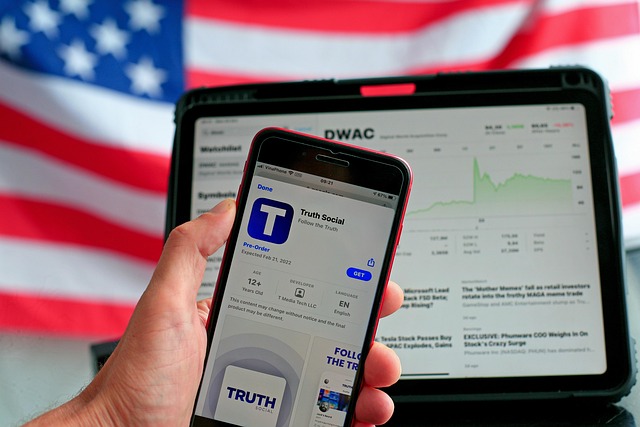Trump’s Truth Social Post About Hakeem Jeffries Sparks Controversy
In the ever-evolving landscape of American politics, social media has become a powerful tool for public figures to communicate directly with their constituents and critics alike. Recently, former President Donald Trump made headlines once again with a controversial post on his Truth Social platform regarding House Democratic Leader Hakeem Jeffries. This incident has reignited discussions about political discourse, race relations, and the responsibility that comes with having a large public platform.
Understanding the Basics

The intersection of politics and social media has fundamentally transformed how political figures engage with the public. Truth Social, launched by Trump Media & Technology Group in 2022, was created as an alternative to mainstream social media platforms after Trump was banned from Twitter and Facebook following the January 6, 2021 Capitol riots. The platform markets itself as a space for free speech, though it has faced scrutiny over its content moderation policies.
Hakeem Jeffries, who made history as the first Black lawmaker to lead a major party in Congress when he became House Democratic Leader in 2023, has been a vocal critic of Trump and his policies. The New York congressman represents a new generation of Democratic leadership and has consistently advocated for civil rights, economic justice, and democratic principles.
When public figures with massive followings make statements that are perceived as racially charged or inappropriate, it creates ripple effects throughout the political ecosystem. These posts don’t exist in a vacuum – they influence public opinion, shape media narratives, and can even impact policy discussions. Understanding the context and implications of such posts requires examining not just the words themselves, but the historical backdrop of racial politics in America, the power dynamics at play, and the broader conversation about accountability in digital spaces.

Key Methods for Analyzing Political Social Media Posts
Step 1: Examine the Context and Timing
When analyzing any controversial political post, the first critical step is to understand the broader context in which it was made. What political events were happening at the time? Was there ongoing legislation being debated? Were there recent conflicts between the individuals involved? In this case, examining what legislative battles or political disagreements might have prompted Trump’s post about Jeffries is essential.

The timing of political posts is rarely accidental. Political strategists often time controversial statements to distract from negative news cycles, energize their base before important votes, or shift media attention away from other issues. By examining what else was happening in the news cycle when the post was made, we can better understand its strategic purpose. Additionally, consider whether the post came during a period of racial tension in the country or if it was designed to appeal to specific voter demographics ahead of an election cycle.
Step 2: Analyze the Language and Imagery Used
The specific words, phrases, and any images included in a controversial post reveal much about its intent and potential impact. Dog whistles – coded language that appears innocuous to general audiences but carries specific meaning to particular groups – are common in political communication. Analyzing whether language invokes racial stereotypes, uses historically charged terms, or employs inflammatory rhetoric helps determine whether a post crosses the line from political criticism into problematic territory.

When examining Trump’s post about Jeffries, it’s important to consider whether the criticism focused on policy positions and political disagreements, or whether it veered into personal attacks that might have racial undertones. The history of how Black political leaders have been characterized in American politics provides important context. Have similar criticisms been leveled at white politicians in comparable positions, or does the language single out Black leaders in particular ways? This comparative analysis helps identify when criticism crosses into racially problematic territory.
Step 3: Assess the Response and Impact
The reaction to a controversial post from various stakeholders – including political allies, opponents, media outlets, civil rights organizations, and the general public – reveals much about its significance and impact. Did Republican leaders defend the post, distance themselves from it, or remain silent? How did Democratic leaders and civil rights organizations respond? What was the tone of mainstream media coverage versus partisan media outlets?

Beyond immediate reactions, it’s crucial to track longer-term impacts. Did the post affect polling numbers for either figure? Did it influence legislative outcomes or political alliances? Were there calls for accountability or consequences? Did the incident lead to broader conversations about race in politics or the regulation of social media platforms? Understanding these downstream effects helps assess whether the controversy was a fleeting moment or represented a significant event in the ongoing evolution of American political discourse.
Practical Tips for Engaging with Political Social Media Critically
**Tip 2: Seek Diverse Perspectives** – When a controversial post emerges, deliberately seek out analysis from across the political spectrum. Read what progressive commentators say, but also what conservative voices argue. Look for perspectives from racial justice advocates, constitutional scholars, and political historians. This multiperspective approach helps you develop a more nuanced understanding of the issue rather than remaining in an echo chamber that only reinforces your existing beliefs. Understanding why people disagree helps build more sophisticated political thinking.
**Tip 4: Distinguish Between Policy Criticism and Personal Attacks** – Healthy democracy requires robust debate about policy differences. There’s an important distinction between criticizing a politician’s positions, votes, or policy proposals versus making personal attacks, especially those that invoke racial stereotypes or inflammatory characterizations. Learning to identify this distinction helps you engage more constructively in political discourse and hold public figures accountable when they cross ethical lines while still supporting vigorous policy debates.
**Tip 5: Consider Power Dynamics** – When evaluating controversial posts, always consider the power dynamics involved. A former president with millions of followers making statements about a political opponent carries different weight than an ordinary citizen expressing opinions. Public figures with large platforms have greater responsibility to consider how their words might incite harassment, spread misinformation, or contribute to hostile environments for marginalized groups. Understanding these power dynamics is essential for thoughtful analysis of political communication.
Important Considerations
When engaging with controversial political posts and the discussions they generate, several important considerations should guide your approach. First, recognize that social media platforms are designed to amplify outrage and controversy because these emotions drive engagement. The algorithms that determine what content you see prioritize posts that generate strong reactions, meaning you’re more likely to encounter the most inflammatory content rather than thoughtful analysis.
Second, understand that political discourse in America exists within a broader context of ongoing racial inequality and tension. The legacy of slavery, Jim Crow laws, segregation, and ongoing systemic racism means that language and imagery related to Black political leaders carries particular weight. What might seem like ordinary political criticism to some people may invoke painful historical patterns for others. Being sensitive to these different lived experiences is essential for productive dialogue.
Third, consider the difference between free speech rights and responsible speech. While Truth Social and other platforms may have different content moderation policies than mainstream social media, the legal right to say something doesn’t make it ethical, appropriate, or consequence-free. Public figures especially should be held to high standards given their influence and platform.
Conclusion
The controversy surrounding Trump’s Truth Social post about Hakeem Jeffries represents more than just another moment of political drama in our fractured media landscape. It reflects ongoing tensions about how we discuss race in politics, the responsibilities of public figures with large platforms, and the role of social media in shaping political discourse. As citizens in a democracy, we have both the right and the responsibility to engage critically with political communication, holding our leaders accountable when they cross ethical lines while preserving space for robust policy debates.
Moving forward, it’s essential that we develop more sophisticated tools for analyzing and responding to controversial political posts. This means moving beyond knee-jerk reactions to engage in thoughtful analysis that considers context, power dynamics, historical patterns, and real-world impacts. It means seeking diverse perspectives rather than remaining in ideological echo chambers. And it means recognizing that while political disagreements are natural and healthy in democracy, we must maintain certain standards of discourse that respect human dignity and don’t weaponize racial stereotypes or inflammatory language.
Whether you’re a political junkie who follows every development or an ordinary citizen trying to make sense of our complex political moment, developing these critical engagement skills will serve you well. The controversies will continue, the social media posts will keep coming, and the debates will rage on – but by approaching these moments with thoughtfulness, historical awareness, and commitment to both free expression and ethical responsibility, we can contribute to a healthier political culture that addresses real issues rather than simply generating endless outrage cycles.
